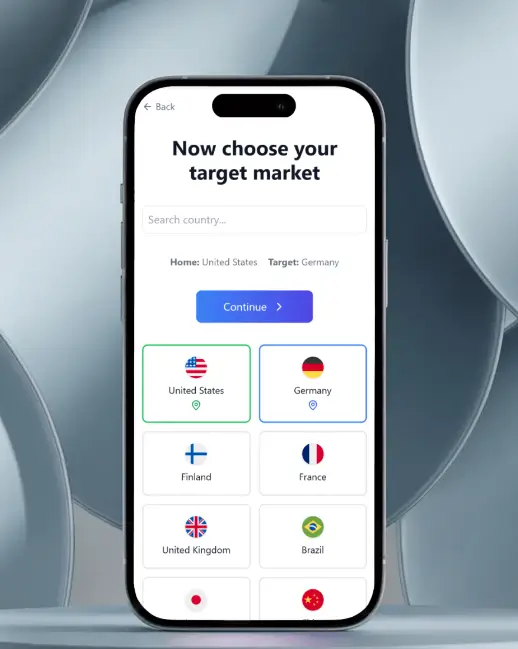1. Introduction: Why Choosing the Right Sales Approach Matters in Europe
Deciding between hiring your own sales team or outsourcing sales is crucial when entering European markets. Each approach offers unique benefits and potential pitfalls. Making the right choice sets your company up for long-term success by aligning your sales strategy with your growth goals and resources.
2. Hiring Local Salespeople: Pros and Cons of Building an In-house European Sales Team
Pros of Hiring Locally
Hiring a local sales team gives your company direct control over its market approach. In-house teams fully commit to your company’s goals, culture, and product expertise. Employees who understand your business deeply can represent your brand authentically and build stronger customer relationships.
Local salespeople also provide invaluable market insight. They know customer preferences, competitor strategies, and cultural nuances essential to success. Over time, this knowledge strengthens your market position and improves customer retention and satisfaction.
An internal sales force promotes long-term stability. Employees stay with your company as it grows, deepening their experience and commitment. They can also train new hires, ensuring your sales knowledge stays within your business.
Cons of Hiring Locally
However, building an internal team can be costly and time-consuming. Recruiting and onboarding local employees involves significant investment. Costs include salaries, benefits, training, office space, and administrative overhead. These expenses add pressure, especially before your business establishes steady revenues in Europe.
Another challenge is navigating local employment laws. European regulations differ widely, making compliance complex. Labor laws can be stringent about hiring, dismissal, work hours, and compensation. Mistakes here could lead to legal issues and unexpected costs.
Hiring also reduces flexibility. If the market changes quickly, your company might struggle to adapt with a fixed internal team. Adjusting staff size or roles involves additional effort, time, and resources. This rigidity could limit your company’s ability to respond swiftly to market shifts.
Overall, hiring your own salespeople works best if you plan for long-term, stable growth in Europe. It requires significant upfront investment and patience but can pay off with deeper market understanding and customer loyalty.
3. Outsourcing Sales in Europe: Benefits and Drawbacks of Partnering with External Sales Teams
Benefits of Outsourcing Sales
Outsourcing sales to external partners offers flexibility and faster entry into European markets. By partnering with established sales firms, your company gains immediate access to experienced salespeople. These teams already understand local markets, customer expectations, and competitive landscapes, enabling quicker initial results.
Outsourcing significantly reduces upfront financial investment. You avoid direct employment costs such as salaries, training, office space, and employee benefits. Instead, your company pays based on performance or predetermined service agreements, simplifying budgeting and managing financial risk.
Additionally, outsourced sales teams provide the flexibility to scale quickly. As your business grows or market conditions change, adjusting sales efforts becomes straightforward. You can rapidly increase or decrease resources without complex hiring or layoffs, helping maintain operational agility.
Drawbacks of Outsourcing Sales
Despite these advantages, outsourcing sales presents certain challenges. External salespeople might not fully embrace your company culture, brand identity, or values. They typically handle multiple products or clients simultaneously, which can dilute their commitment to your business specifically.
Another drawback involves limited control over day-to-day operations and sales methods. External teams might use approaches or messaging not completely aligned with your company’s standards or desired brand image. This disconnect could negatively affect customer relationships and perceptions of your business.
Finally, outsourcing might reduce your direct customer engagement and market insight. External salespeople build critical customer relationships, which means valuable customer feedback and market intelligence might remain with them instead of transferring fully to your organization.
In summary, outsourcing sales works well when you prioritize speed, lower initial costs, and flexibility. However, this approach requires careful partner selection and management to ensure long-term brand alignment and market success.
If you’re looking for a sales outsourcing partner, check out Sales Outsourcing in Europe turn-key service.
4. Cost Comparison: Understanding Financial Implications of Hiring vs. Outsourcing
Costs of Hiring an In-house Sales Team
Hiring a local sales team in Europe involves significant initial expenses. Salaries, benefits, and bonuses represent large fixed costs. Beyond payroll, consider additional investments in recruitment, training, office space, and administrative support.
Employment regulations in European countries add complexity and cost. Requirements such as mandatory vacation, social contributions, and severance pay can substantially increase expenses. Mistakes in compliance may also lead to unforeseen penalties or legal fees.
Although building a local team demands substantial upfront resources, the long-term payoff comes through increased control and sustained customer relationships. As your company grows, economies of scale can gradually lower per-salesperson costs, making your investment more sustainable.
Costs of Outsourcing Your Sales Team
Outsourcing sales significantly lowers initial investment and ongoing fixed expenses. Your company pays primarily based on performance or service agreements, limiting financial risks if sales results don’t immediately meet expectations.
However, outsourcing usually involves performance-based fees or commissions. While reducing upfront costs, these fees may add up quickly as sales grow. Your total spending could eventually surpass the costs of maintaining an internal team, especially as your presence expands across multiple European markets.
Furthermore, outsourced sales partners typically require clear contracts and careful management to ensure transparency. Over time, costs related to monitoring, partner management, and quality assurance may rise. Without careful oversight, hidden costs can appear, reducing the financial advantages initially promised by outsourcing.
In summary, the decision between hiring internally or outsourcing sales depends on your budget constraints, risk tolerance, and growth strategy. Hiring offers stability and long-term efficiency, while outsourcing provides flexibility and lower initial risks. Understanding these financial implications clearly will guide you to the best choice for your company’s European expansion.
5. Speed and Flexibility: Which Approach Lets You Enter European Markets Faster?
Speed of Market Entry
Outsourcing sales typically enables faster entry into European markets. External sales teams are already established locally, equipped with market knowledge, existing customer relationships, and the necessary infrastructure to start selling immediately. Your business can capitalize on their readiness, avoiding delays associated with recruitment, onboarding, and training.
On the other hand, hiring an internal sales team takes more time. Recruiting suitable candidates, setting up local offices, and training new hires usually requires months of preparation. During this period, your competitors could gain valuable market share, making rapid entry critical for early success.
Flexibility to Adapt
Outsourcing provides significant flexibility for adjusting your market strategy quickly. If customer demand shifts or initial market tests reveal a need for strategic adjustments, an outsourced sales model lets your company rapidly scale up or down. You can respond promptly to changing market conditions without committing extensive resources.
Hiring an internal team reduces this flexibility. Once hired, your team becomes a fixed commitment. Scaling down involves layoffs or contract renegotiations, both of which carry financial costs and operational disruptions. Scaling up also takes time, requiring additional recruiting and onboarding efforts.
In short, outsourcing offers superior speed and adaptability, essential for rapidly responding to European market opportunities. However, companies planning a long-term European presence may still prefer the stability and deeper commitment of building an in-house sales team.
6. Cultural Fit and Customer Relationships: Impact on Long-term European Market Success
Importance of Cultural Fit
Achieving a strong cultural fit is essential for long-term success in European markets. Customers prefer buying from companies that understand their unique cultural and business needs. Hiring local salespeople often provides the advantage of naturally aligning with customer expectations and cultural nuances. These employees share the local language, values, and business etiquette, building trust quickly and effectively.
In contrast, outsourced sales teams may face challenges fully integrating your company’s culture into their approach. Although experienced locally, external salespeople might struggle to convey your brand’s distinct values and identity accurately. This gap can lead to misunderstandings or weakened customer relationships over time.
Building Strong Customer Relationships
In-house sales teams are typically better at forming deeper and longer-lasting customer relationships. Employees dedicated exclusively to your brand develop detailed product expertise and commit fully to customer success. They can foster trust and loyalty, enhancing customer retention and driving repeat business.
Outsourced teams often manage multiple clients or products, limiting their time and attention for each. Although they bring immediate market access, their broader focus can limit the depth of customer relationships. External teams might prioritize immediate sales rather than nurturing long-term connections, potentially impacting sustained success.
Ultimately, if your goal includes building a lasting presence with deeply-rooted customer relationships, hiring local salespeople offers clear advantages. However, if rapid market entry and initial customer acquisition remain your priority, outsourcing can still serve as an effective short-term solution.
7. Conclusion: How to Decide Between Hiring and Outsourcing for Your European Expansion
Choosing between hiring an internal sales team or outsourcing your sales efforts depends on your company’s specific goals, resources, and timeline. If your priority is long-term market presence, deep customer relationships, and cultural alignment, hiring local salespeople offers clear advantages. You gain better control, build stable teams, and foster lasting customer loyalty.
However, if speed, flexibility, and reduced upfront costs matter most, outsourcing presents a compelling option. Partnering with an external sales team enables quicker market entry, immediate local expertise, and lower financial risk as you establish your European presence.
Ultimately, many companies find success by combining both approaches—outsourcing initially to test markets quickly, then gradually building a dedicated local team as the business grows.
Consider carefully your company’s long-term strategy, financial situation, and market ambitions to choose the right sales approach for successful European expansion.
Think your company has what it takes to enter a new European market?
Try out our international expansion quiz game! You can select your home and target market to see if your company has what it takes to enter the market successfully. The game is completely free to play and you’ll get a personalized and detailed analysis at the end.


















